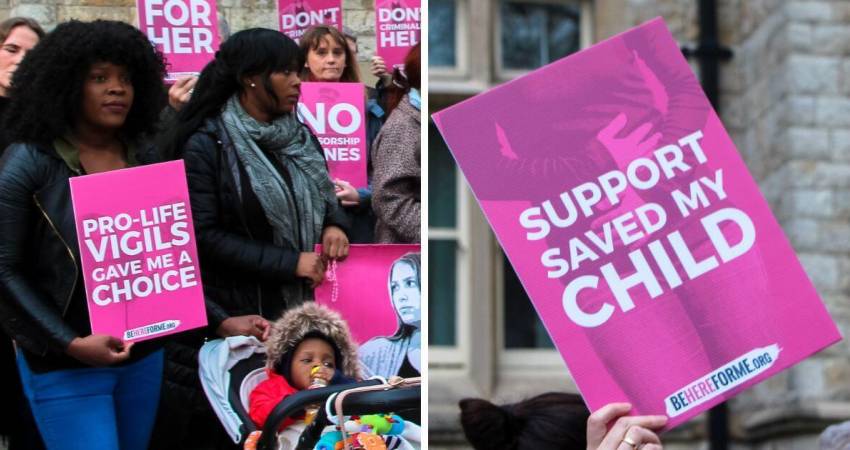
UK buffer zone faces legal challenges in court
An abortion buffer zone in Bournemouth was the subject of legal challenge at the High Court in London yesterday by Christian Concern and Livia Tossici-Bolt, a former clinical scientist.
The controversial buffer zone was implemented by means of a Public Space Protection Order (PSPO), intended to make it a criminal offence to attempt to help women or pray within a certain radius of an abortion clinic. This criminalisation may be proven unlawful after being challenged on the grounds that it restricts otherwise lawful activity within private dwellings.
The exclusion zone, stretching for 150 metres, was introduced under section 67 of the Anti-Social Behaviour, Crime and Policing Act 2014, and covers the radius of the British Pregnancy Advisory Group clinic in Ophir Road, Bournemouth.
Buffer zones around abortion clinics were introduced in the UK in January 2023, following an amendment to the Public Order Bill.
These measures have been described by politicians and campaigners as “deeply draconian measures that criminalise free speech” and block the women who need it most from access to alternatives to abortion and information on the support that is available to them.
Under these measures actions in the zone which would be held by many to be contributing to the common good such as vigils, offering support, and praying, could result in a fine and potentially several months in prison.
The way that the buffer zone in Bournemouth has been drawn up by authorities is unusual as the exclusion zone covers not only public spaces, such as abortion clinics, but also private and residential areas.
It is for this reason that lawyers argued that someone living within the buffer zone, if they were to be seen or heard praying against abortion from the comfort of their own home, could be charged with a prison sentence without even leaving their house.
Public Space Protection Orders were initially introduced with the intention of helping to “ensure that the law-abiding majority can use and enjoy public spaces, safe from antisocial behaviour.” The PSPO guide places emphasis on the fact that these orders should be carefully considered, stating “it is important that the restrictions imposed are focussed on specific behaviours and are proportionate to the detrimental effect that the behaviour is causing or can cause…” The implementation of such an order has been almost exclusively reserved for combating anti- social behavioural issues such as drink or drug use in local communities.
Ahead of the hearing, Miss Tossici-Bolt stated “I find [it] extremely concerning that unfounded accusations of such reprehensible behaviour have been used for ideological gains to discredit genuine humanitarian endeavours. We have already been intimidated out of exercising our freedom of thought and of expression, but have continued to defend these fundamental rights with peaceful conduct”.
The legislation in which it is a criminal offence to “influence” any woman looking to access any abortion services within a 150 metre radius of an abortion clinic in England or Wales was passed in March of this year but it is yet to be enforced legally.
Livia Tossici-Bolt’s challenge of this the restrictive legislation comes after the Home Secretary, Suella Braverman, declared to police in the UK last month that “silent prayer, within itself, is not unlawful”, encouraging people to ask questions about the legislation passed earlier this year that makes “influencing” any person who wants to access abortion services at an abortion facility a criminal offence.
Braverman’s letter came just days before the First Minister of Scotland, Humza Yousaf, showed his continued support for the implementation of buffer zones in Scotland at the beginning of September.
“[H]olding lawful opinions”, Braverman states in her letter to UK police officers, “even if those opinions may offend others, is not a criminal offence”.
Featured
- Calls for inquiry: 108 babies born alive then die after abortion
- Britain: Assisted Suicide Bill ‘will almost certainly fail’
- Every Life Counts: sending love and care for sick babies
- "A step backwards": Jersey has legalised Assisted Suicide
- 8,000 babies saved by Abortion Pill Reversal
- Spain Moves To Restrict Pro-Life Protests Near Abortion Clinics
- Mediums and abortion: a dangerous narrative
- Man jailed for 9 years for forced abortion
- Abortion coercion has arrived in Ireland – the NWC are silent
- Review of at-home abortions 'needed after coercion case'
- French Govt to remind 29-year-olds of biological clock
- Rally for Life 2025



























